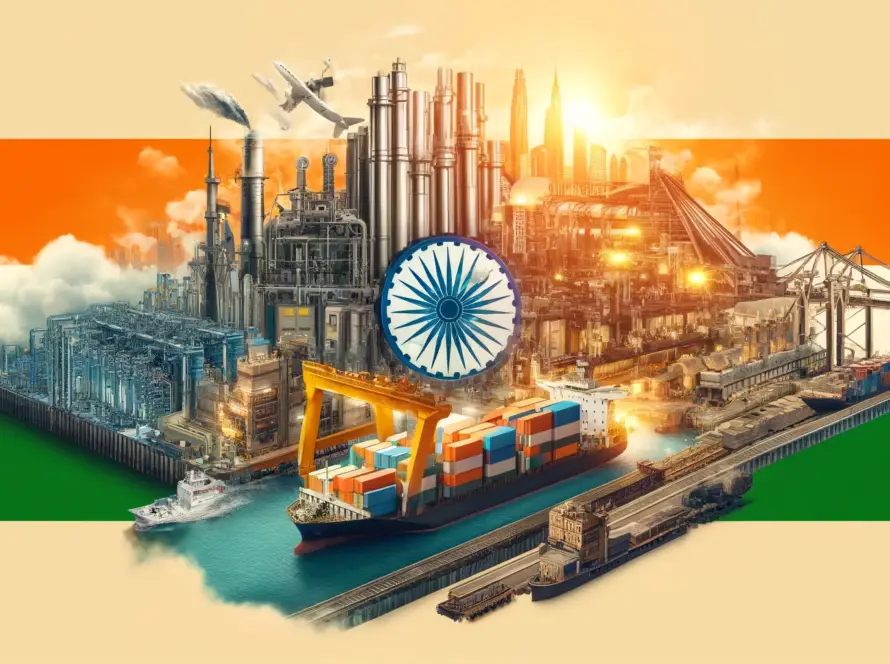With global trade constantly shifting, U.S. manufacturers see the need to diversify supply chains to mitigate risks and find cost-effective alternatives. India has emerged as a compelling option, offering benefits that enhance supply chain resilience and efficiency. To shed light on this transition, we spoke with Deepak Labba, a seasoned supply chain expert based in India. He shares insights on competitive costs, quality assurance, efficient logistics, resilient supply chains, and emerging trends in Indian manufacturing that U.S. manufacturers should consider.
Deepak Labba is the General Manager of Supply Chain (SE Asia) at Regal Rexnord Corp, where he oversees global sourcing and supply chain operations. With a career spanning over three decades, including significant roles at General Electric and Crompton Greaves, Deepak has a track record of developing high-performing supply chains and fostering robust supplier relationships.
Q&A with Deepak Labba: Why India is a Strategic Sourcing Alternative
1. Cost Comparison
Question: How do the overall costs of manufacturing in India compare to those in China? What factors, including labor and production costs, play a significant role in these differences?
Answer: When comparing costs, it’s critical to look at the Total Landed Cost (TLC) for any project, including environmental impact. Raw materials are fairly consistent globally as they follow global commodity indexes. The differences primarily lie in labor and production costs and, importantly, the technology used in manufacturing. Labor costs in India are competitive compared to China, partly because India entered the manufacturing sector later. This delay allowed Indian manufacturers to invest in the latest equipment, embracing automation and environmentally friendly technologies. Over the last decade, especially in the past 5-6 years, Indian foundries have invested heavily in automation and green technologies, improving productivity. These factors contribute to India’s ability to offer a better overall TLC for global customers in several commodities.
2. Quality Assurance
Question: What quality assurance processes do Indian manufacturers use to meet the standards of U.S. companies, and how do they ensure high-quality outcomes?
Answer: Indian manufacturing emphasizes first-time-right development for new products and ZERO PPM (parts per million) defects for ongoing production. This high standard has been demonstrated consistently by Indian suppliers for global customers, with many winning global awards. We follow Advanced Product Quality Planning (APQP) with rigorous feasibility studies for all projects, involving stakeholders from customers to operators. This approach ensures all drawings, designs, and specifications, including Critical to Quality (CTQ) parameters, are reviewed and agreed upon in advance. APQP includes discussions on machines, gauges, sampling, and Statistical Process Control (SPC) aspects. After this stage, the Production Part Approval Process (PPAP) is implemented for pilot and production runs, adhering strictly to all PPAP elements.
3. Lead Times and Logistics
Question: How do lead times for production and shipping from India compare to those from China? What logistics strategies do Indian suppliers use to ensure timely deliveries?
Answer: Both India and China offer different logistical advantages and disadvantages. Chinese goods travel through the Pacific Ocean, resulting in shorter shipping lead times compared to Indian shipments that pass through the Atlantic Ocean. Recent disturbances in the Red Sea have caused issues and cost escalations for supplies from India. However, these risks are manageable with better planning. Indian suppliers excel in offering “Just In Time” service levels, enabled by the Indian central bank’s 180-day grace period before export proceeds must be remitted back and Vendor Managed Inventory (VMI) programs. These factors allow better lead-time visibility and planning, fostering strategic relationships with customers. Even being a sole source does not cause anxiety, as VMI warehouses ensure stock availability, mitigating risks associated with lead times or shipping delays.
4. Building Resilient Supply Chains
Question: What advice would you offer to U.S. companies looking to build resilient supply chains with Indian partners?
Answer: In today’s geopolitical environment, terms like “protectionism,” “friend shoring,” and “near shoring” are prevalent, but what truly matters is “trust shoring.” Globalization must be leveraged for competitiveness, and India is well-positioned to offer “trust” in global supply chains. India is a thriving democracy with stable global relations and significant government investments in “Ease of Doing Business” initiatives and policy changes to support resilient supply chains. Diversifying supply chains from China to India provides inherent benefits such as a young, trained workforce, advanced manufacturing technologies, and competitive pricing. Additionally, India’s strong domestic demand and growing exports contribute to a stable economic environment, making it an attractive option for global companies.
5. Emerging Trends
Question: What emerging trends in the Indian manufacturing sector should U.S. companies be aware of? How might these trends impact sourcing strategies?
Answer: Last year, India hosted a successful G20 Summit, emphasizing the theme “Vasudhaiva Kutumbakam” or “One Earth · One Family · One Future,” promoting environmentally sustainable and responsible choices. This theme reflects India’s commitment to inclusive and responsible growth. India is currently the 5th largest economy and is expected to become the 3rd largest soon, growing rapidly and responsibly. The country’s high score in the UN SDG Spillover Index demonstrates its positive global impact. India is investing in advanced technologies and automation, embracing sustainable processes, and adopting a collaborative approach. These developments make India a robust and reliable manufacturing base, offering comprehensive solutions for global companies in the years to come.
As a U.S.-based company with 30 years of experience, Source Machining Specialties specializes in helping U.S. manufacturers with their manufacturing needs in India. We’re so confident in our Indian production facilities that we invite you to a site audit at our expense. Discover more about our capabilities and services, and let’s start a conversation.



